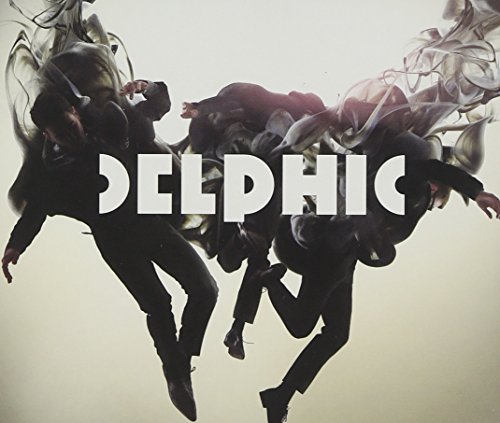
Delphic
Acolyte
Release Date: Jun 29, 2010
Genre(s): Rock, Dance
Record label: Dangerbird
Music Critic Score
How the Music Critic Score works
Album Review: Acolyte by Delphic
Very Good, Based on 8 Critics
Based on rating 8/10
More often than not, Manchester’s Great White Hopes tend to be a gang of scraggly lads clutching vintage guitars and mouthy attitudes, hoping to follow in the footsteps of the city’s indie-rock forefathers. Mercifully, the act leading 2010’s most likely to are walking to a different beat, albeit one with equal weight upon Manchester’s musical shoulders: the Factory records back catalogue. Delphic – a group of studious-looking types dressed in monochrome and standing behind banks of keyboards – have already been included in many tips for 2010 polls, usually under the heading of ‘the new New Order’, and the band themselves have already recognised the debt they owe to Bernard Sumner and co by on occasion segueing into 'Bizarre Love Triangle' on live occasion.
Based on rating 4/5
The road to hell is lined with the burnt-out husks of groups who tried to fuse rock and dance. This alchemist’s quest has thrown up some atrocities over the last 20-odd years – older readers will shake their heads sorrowfully when the name of [a]Jesus Jones[/a] is mentioned, and none but the most mentally impaired will want to rush to the defence of [a]Hadouken![/a]. The main problem has been an inability of certain bands to see going dance as anything more complex than whacking a massive breakbeat and a fat acid bassline on to a guitar track.
Based on rating 4/5
Few events in chart history have caused as much discussion as the Christmas battle between Rage Against the Machine and Joe McElderry. Indeed, news programmes gave it so much space that they visibly started running out of pundits to discuss it. You pictured harassed researchers coming to blows over Paul Gambaccini, like early 80s mums scrapping over the last Cabbage Patch Kid in Toys R Us: evidence that the shelves had finally been stripped bare came when one show sought the opinions of legendary musical authority Ricky "My Arse" Tomlinson of The Royle Family.
Based on rating 7/10
It marks Delphic out as, if you will, the new New Order... Proof that musical history moves in cycles, were they born three decades earlier Delphic would’ve fitted in spookily well at Factory, their native Manchester’s most celebrated indie label. True, the trio’s post-new rave electronics-meet-guitars dexterity is something of a Buzz Aldrin to Bloc Party’s Neil Armstrong in places on this debut album.
Based on rating 7/10
One of the most promising new British bands to emerge in 2009, Delphic made their eagerly awaited full-length debut the following year with Acolyte, an impressive alternative dance album that adds eight songs to the previously released singles "Counterpoint" and "This Momentary." Like those early singles, Acolyte finds the Manchester band making blissful dance music with fellow Englishman Ewan Pearson in his Berlin studio. While Delphic are new on the scene, Pearson isn't. He's an ace producer with a reputation for remixing the best in the business.
Based on rating 6/10
You’d think, in these days of internet downloading and short attention spans, there’s never been a greater need for an album to be a coherent, consistent collection of songs. Judging by the huge influx of patchy long-players over the past half-decade, though, few artists have cottoned on to this. By and large, it appears we’ve gone back to those pre-Beatles days, when an album was merely a vessel for making extra bucks from a hit single or two.
Based on rating 5.0/10
Delphic emerged from the BBC's recent poll of tastemakers as the nation's most hotly tipped new indie band, but in 2010, in the UK, this is not such a great accolade. It's a sign of the post-Britpop times that in the final tipsheet the band actually finished third, trailing behind a couple of arty female pop acts (think this year's version of Florence, or Little Boots). While 2009 was a golden year for U.S.
Opinion: Excellent
Acolyte might just be the first great album of 2010. Lou Thomas 2010 Having already been tipped for success by several end-of-year industry polls, big things are almost a given for Manchester’s Delphic. When also considering the excellence of their two previous singles (Counterpoint and This Monetary) and their auspicious live reputation, Acolyte would have been a disappointment if it wasn’t, at the very least, a solid indie-dance album.

